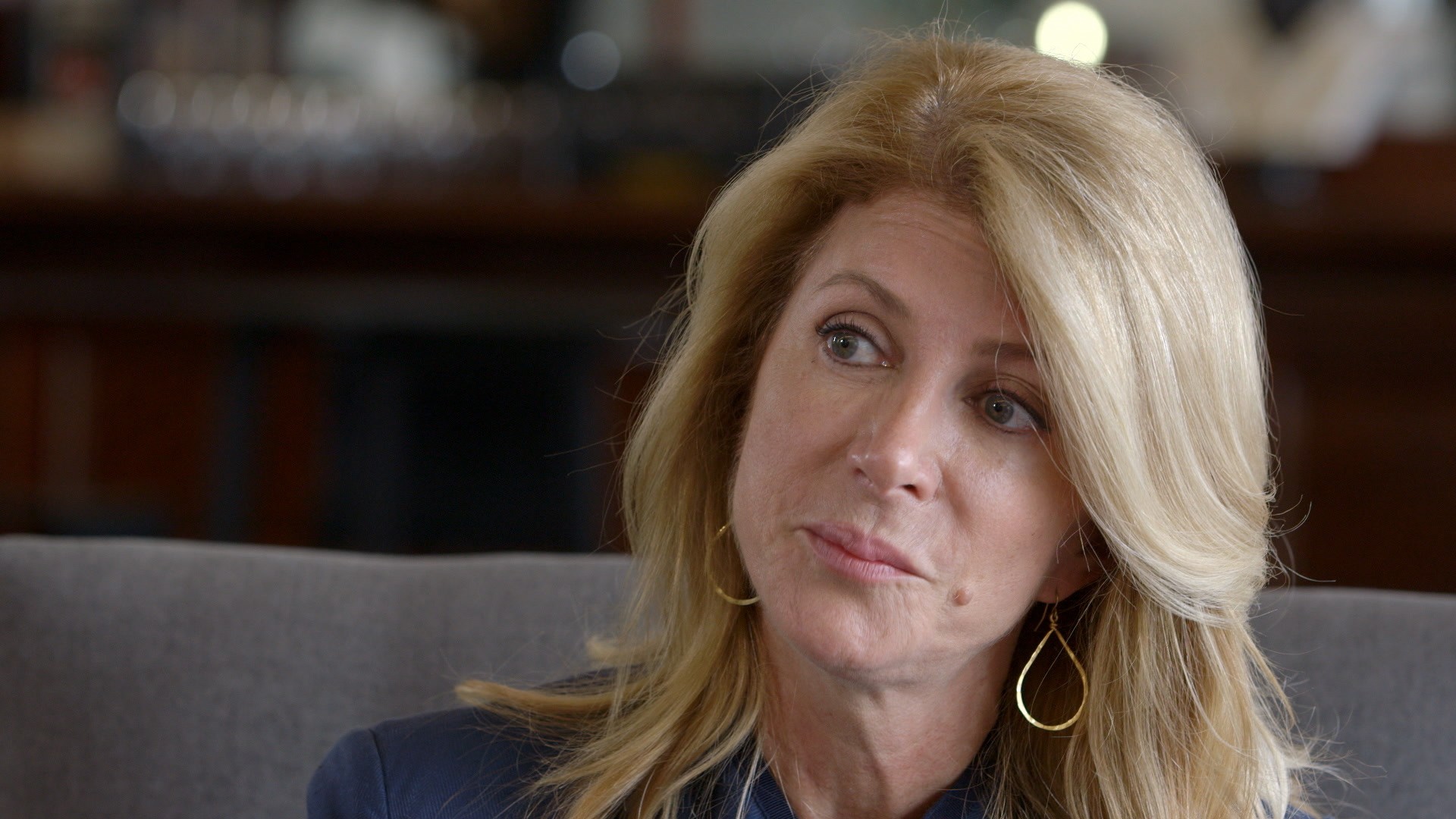In 1993, Linda Baker, a dental hygienist in Los Angeles, decided she was sick and tired of "waiting for the chain of events that lead up to feasting on [a] wedding cake." Taking matters into her own hands, she invited seventy-five of her closest friends to watch her walk down a makeshift aisle that ran alongside a bar in Santa Monica. Then, by the power vested in her actor friend Ron Cummins, she took herself to be "her own lovely wedded person."
Advertisement
A little more than two decades would pass before self-marriage was deigned a "phenomenon" by the press. In 2014, Sasha Cagen, author of the book, Quirkyalone: A Manifesto For Uncompromising Romantics, pledged uncompromising devotion to herself during a self-wedding in Beunos Aires. Cagen insists that her self-marriage wasn't about celibacy or giving up on dating; instead, it was an attempt to quell an inner voice that said she'd never be truly fulfilled without a man. "For me, it was about feeling enough on my own," she tells Broadly.Today, if recent reports are to be believed, droves more millennial women are choosing to marry themselves rather than continue to search for a lifelong partner on dreary Tinder. Fed up with pestering parents and self-satisfied married friends, they're allegedly tossing their old issues of Modern Bride into the nearest bonfire, gathering their gal pals together and pronouncing to the assembled, "With this ring, I me wed."
In truth, it's hard to gauge just how many single people have hopped on the self-marriage bandwagon; those in the movement I spoke with say they've recently received more inquiries from the press than from aspiring sologamists. As one might imagine, sologamy isn't recognized as a binding legal contract by North America, the UK, the EU, or most parents, but its adherents don't seem to mind. The movement is all about embracing the pomp and circumstance of a marriage ceremony while rejecting the "tyranny of coupledom."Read more: Women Share How Much They Hated Their Wedding Day
Advertisement
When Cagan married herself, she found that adopting all of the traditional signifiers of a wedding—the dress, the vows, the ring, the guests—helped make real the promises she'd only made to herself in private. "Creating a ritual is more powerful than just sitting in your room and journaling that you want to love yourself, or even writing a love letter to yourself," Cagen says. "When you make a ritual, you're making a vow. It draws a line in the sand and it has a depth and a weight to it, like marriage."
Watch now: Wendy Davis and the Unstoppable Fight for Abortion Rights
Since Cagen's self-marriage, a small cottage industry of coaches, planners, and vendors has begun trying to make self-marriage ceremonies feel as consequential as the two-person kind. In Kyoto, a self-wedding service for singles provides makeovers, photo shoots, and a small ceremony for roughly $2,500. (Curiously, the package also includes the option of renting a "decorative" man, aged between 20 and 70, to pose alongside singles on their magical day.) The travel-averse can also embark on a ten-week self-marriage course by a coach who's been marrying off singles at Burning Man for years: "It is time to fully live your one wild and precious life," her website reads. For those in need of self-wedding rings, a site called "I Married Me" offers them from $25 to $300, depending on how much you think you're worth.While queer people and men would likely benefit from self-actualization ceremonies, Cagen said most participants in her workshops have been straight women. "I think LGBTQ people would benefit in the same ways from self-marriage—especially to heal from trauma, abuse, and internalized homophobia—but they haven't faced the same pressure to marry as single straight women so I don't see quite the same resonance as a trend," she said.
Watch now: Wendy Davis and the Unstoppable Fight for Abortion Rights

Since Cagen's self-marriage, a small cottage industry of coaches, planners, and vendors has begun trying to make self-marriage ceremonies feel as consequential as the two-person kind. In Kyoto, a self-wedding service for singles provides makeovers, photo shoots, and a small ceremony for roughly $2,500. (Curiously, the package also includes the option of renting a "decorative" man, aged between 20 and 70, to pose alongside singles on their magical day.) The travel-averse can also embark on a ten-week self-marriage course by a coach who's been marrying off singles at Burning Man for years: "It is time to fully live your one wild and precious life," her website reads. For those in need of self-wedding rings, a site called "I Married Me" offers them from $25 to $300, depending on how much you think you're worth.While queer people and men would likely benefit from self-actualization ceremonies, Cagen said most participants in her workshops have been straight women. "I think LGBTQ people would benefit in the same ways from self-marriage—especially to heal from trauma, abuse, and internalized homophobia—but they haven't faced the same pressure to marry as single straight women so I don't see quite the same resonance as a trend," she said.
Advertisement
Cagen first wrote Quirkyalone—her paean to the single life—in 2003, a time when she says single women were being urged to treat their dating lives like jobs and depictions of lonely spinsters were rife in the media. "There was a lot of fear mongering about being over thirty five and still single when I first wrote the book," she said. "It made getting older and being single seem even scarier than it does now."
Bella DePaulo, author of Singled Out: How Singles Are Stereotyped, Stigmatized, and Ignored, and Still Live Happily Ever After, believes single people are still depicted as tortured loners, but she doesn't see self-marriage as a kind of culture jamming intervention to the wedding industrial complex. Instead, she thinks that in their embrace of the pomp and circumstance of traditional wedding ceremonies, sologamists end up tacitly endorsing the institution. "By using the wedding ritual as a template, people who are self-marrying are just reinforcing the power of the traditional wedding, when what they're trying to do is resist that power," she says.DePaulo argues that sologamy triggers the worst stereotypes about single people—that they're self-involved loons -- despite research showing those who fly solo are generally less narcissistic than their coupled friends. "They're more generous, they volunteer more, and they care more for their aging parents," she says, citing research by the Bureau of Labor statistics and the journal of Social Science & Medicine."By using the wedding ritual as a template, people who are self-marrying are just reinforcing the power of the traditional wedding, when what they're trying to do is resist that power"
Advertisement
Though she views sologamy as antithetical to the ethos with which most single people identify, DePaulo thinks traditional marriages are worthy of a greater share of snark. "Why don't we have the same gut reaction to traditional marriages and traditional couples?" she asks. "You're supposed to take an entire weekend and fly somewhere, and it's massively expensive, plus they expect you to buy them even more stuff! Why don't we look at that and instinctively say, that is such a self-centered celebration?"
She notes that the majority of pushback against sologamy likely emanates from the fact that "other people are really invested in the idea that married people are better people and that if you get married you'll be healthier, happier, and morally superior. ""We have been told for so long that single people are miserable and lonely and want nothing more than to find a spouse and get married—and if they find one, they'll be magically transformed into happier and healthier people," she says. "It's harder today to maintain that kind of fairytale version of what marriage and single life is like."The notion that self-weddings can dismantle the marriage industrial complex while bringing peace to "tortured" singles seems a bit of a stretch, but you'd have to be hopelessly cynical to dismiss someone else's efforts towards self-actualization as a simple display of narcissism. Even DePaulo says she would be happy to attend a self-wedding if invited. "I do like the idea of articulating what's important to you and what matters to you," she said.
